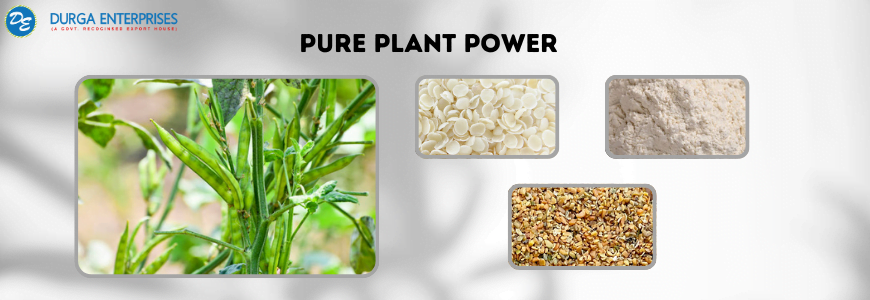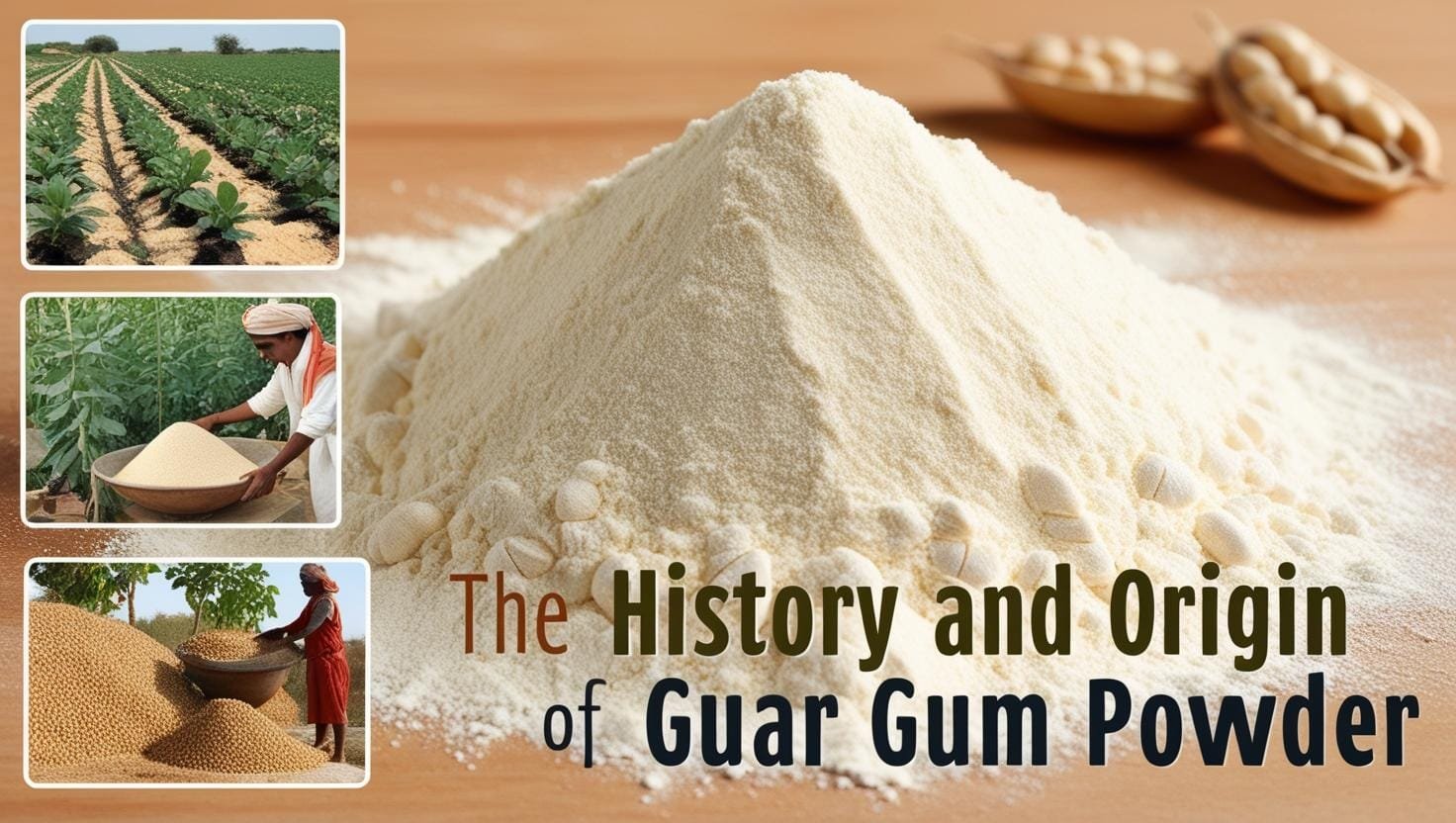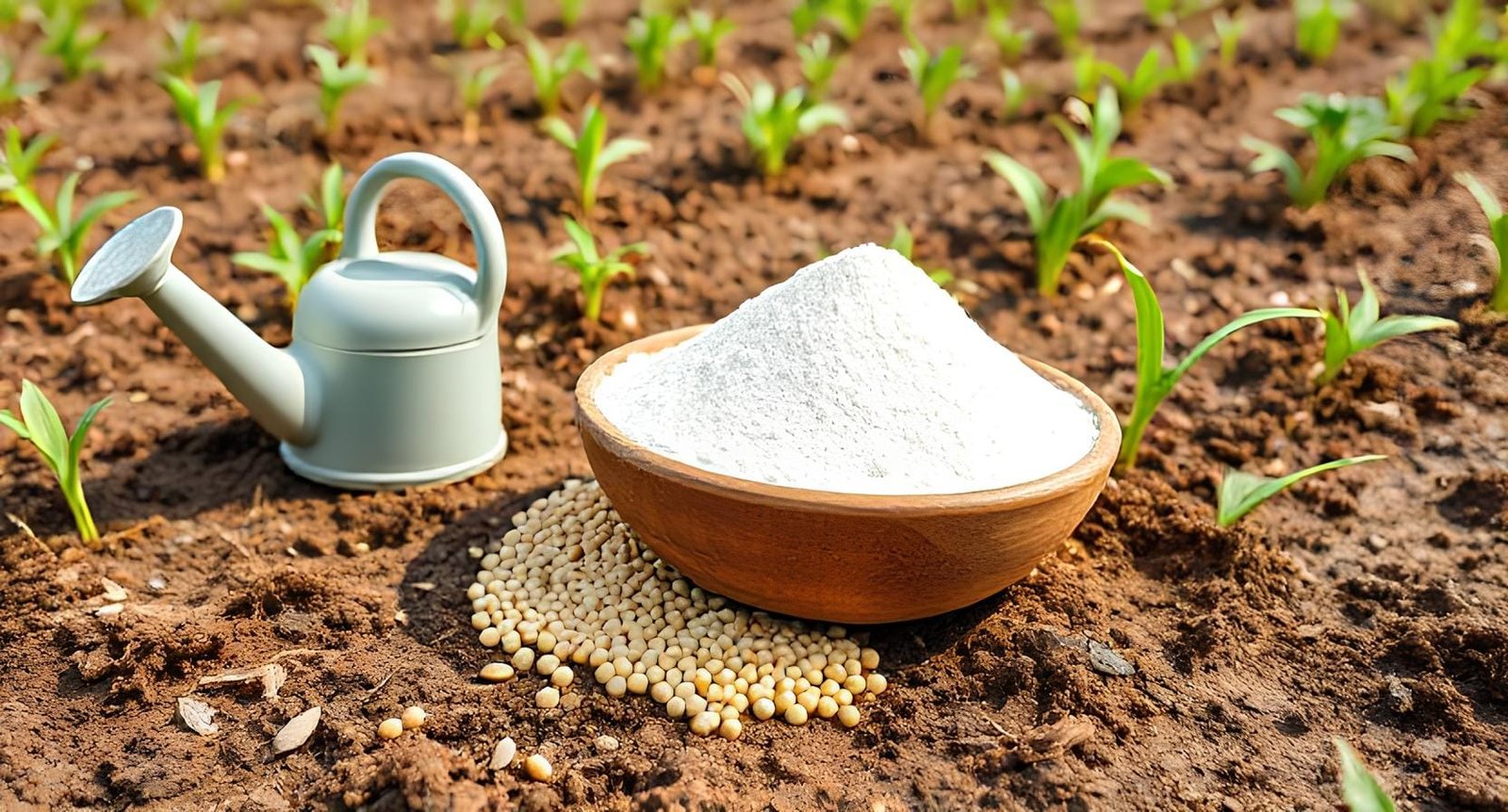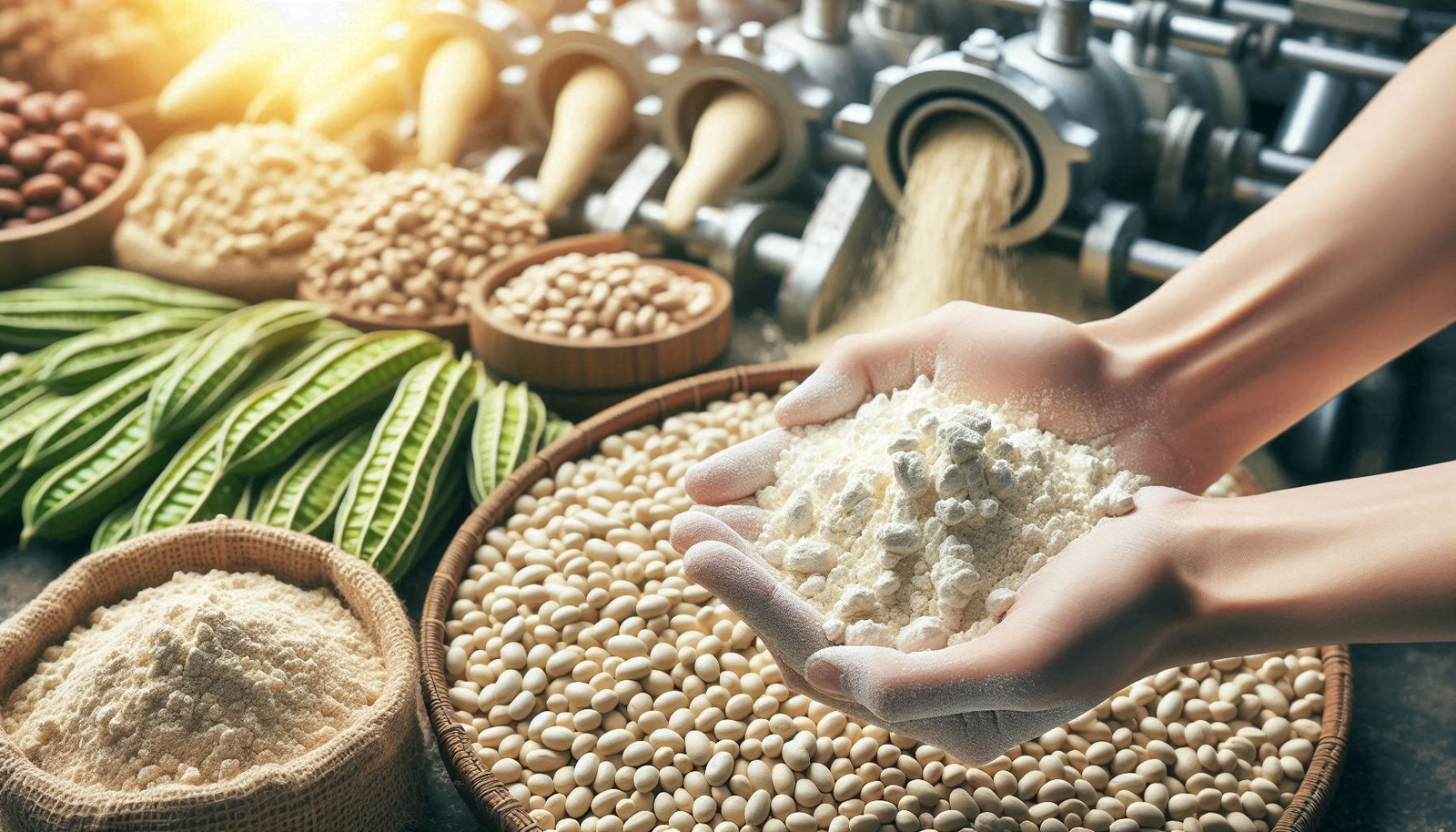In the world of food and industrial products, there are numerous substances that play a crucial role in their production and quality. One such substance that has gained widespread importance is guar gum powder. Derived from guar beans, this product is known for its versatility and wide-ranging applications in various industries, making it a valuable commodity in today’s market. In this blog, we will delve into the world of guar gum, exploring its uses, production, and the key players in its export and manufacturing industry.
What is Guar Gum?
Guar gum is a natural and environmentally friendly product derived from the tissues of guar bean. Derived from guar bean extract, this substance is known for its ability to thicken, stabilize, and emulsify, making it a key player in the food, pharmaceutical, and cosmetic sectors. The guar plant, scientifically known as Cyamopsis tetragonoloba, is primarily grown in the regions of India and Pakistan. The seeds of the Guar Gum Plant are processed to obtain guar gum, which is a water-soluble substance with excellent thickening and binding properties. This characteristic makes guar gum a popular choice in a wide range of industries, including food, pharmaceuticals, cosmetics, textiles, paper, and more.

The Versatility of Guar Gum
In the food industry, guar gum is widely utilized as a thickening agent, stabilizer, and emulsifier. It is commonly found in products such as ice cream, yogurt, cheese, sauces, and salad dressings. Due to its ability to prevent crystallization, improve texture, and enhance shelf life, guar gum has become an essential ingredient in the production of various food items.
Aside from its applications in the food industry, guar gum is also extensively used in pharmaceutical formulations. It serves as a binder and disintegrating agent in tablets and capsules, providing cohesiveness to the formulation and aiding in the release of active ingredients. Moreover, its role in controlling viscosity and improving stability makes guar gum a valuable component in the manufacturing of personal care and cosmetic products.
Furthermore, guar gum finds widespread application in the oil and gas industry as a viscosifier in hydraulic fracturing fluids. Its ability to efficiently carry proppants and control fluid loss makes it indispensable in the extraction of oil and natural gas from underground formations. In the textile and paper industries, guar gum is utilized for its excellent film-forming and thickening properties, contributing to the production of high-quality textiles and paper products.
The Role of Exporters and Manufacturers
The global demand for guar gum has led to the emergence of a robust export and manufacturing industry, with India being one of the primary exporters and manufacturers of guar gum. Indian companies have played a pivotal role in supplying high-quality guar gum to various international markets, meeting the diverse needs of industries worldwide.
The manufacturing process of guar gum involves several stages, including cleaning, dehusking, milling, and refining the guar beans to obtain the desired form of guar gum. Through advanced processing techniques and stringent quality control measures, Indian manufacturers have been able to deliver guar gum of exceptional quality, meeting international standards and regulations.
In addition to manufacturing, the export of guar gum is equally significant. Exporters of guar gum play a crucial role in facilitating the distribution of this valuable product across the globe, ensuring its availability to industries in different countries. By establishing strong networks and adhering to efficient logistics and supply chain management, exporters contribute to the seamless global trade of guar gum, bolstering its presence in various markets.
The Process of Manufacturin Guar Gum
The journey of guar gum starts with the de-husking, hydrating, milling, and sifting of the guar beans. Each of these steps is crucial to ensure the purity and quality of the final product, which is a white to yellowish-white, nearly odorless powder.
Health Benefits of Guar Gum
Guar gum is high in soluble fiber, which offers various health benefits, including:
- Digestive Health: It aids digestion and improves gut health.
- Blood Sugar Management: It can slow the absorption of sugar, helping to regulate blood sugar levels.
- Cholesterol Management: Guar gum has been associated with lowering bad LDL cholesterol.

Potential Risks and Side Effects
Despite its benefits, guar gum may pose some risks, such as:
- Gastrointestinal Issues: Overconsumption can lead to gastrointestinal discomfort, including gas and bloating.
- Possible Allergic Reactions: Some may experience allergies, although this is relatively rare.
Regulatory Status
Guar gum powder is approved for use in many countries and considered safe under certain regulatory standards such as the Food and Drug Administration (FDA) in the United States.
The Sustainability of Guar Farming
Interestingly, guar beans are a drought-resistant crop, normally requiring minimal resources, which makes them relatively sustainable compared to other crops.
The Future of Guar Gum
As industries continue to seek natural and versatile ingredients for their products, the demand for guar gum is expected to rise. With its environmentally friendly nature and diverse applications, guar gum is well-positioned to maintain its significance in various sectors. Moreover, ongoing research and development efforts aimed at enhancing the properties and applications of guar gum are likely to unlock new opportunities for its utilization in emerging industries.
In conclusion, guar gum stands as a testament to the invaluable contributions of natural products to modern industries. Its role as a thickening agent, stabilizer, and viscosifier underscores its importance in the production of a wide array of goods. The efforts of exporters and manufacturers in producing and supplying high-quality guar gum are instrumental in meeting the growing global demand for this remarkable substance. As we look to the future, guar gum is poised to remain an integral part of numerous industries, shaping the quality and functionality of diverse products around the world.
Conclusion:
From thickening your favorite desserts to stabilizing new-fangled cosmetic creams, guar gum powder is an ingredient of remarkable versatility. It demonstrates the profound interconnectivity of agriculture and industry. However, like any other ingredient, moderation and mindful consumption are key to avoiding its potential downsides.
In our increasingly health-conscious society, understanding ingredients like guar gum is imperative. It’s a testament to human ingenuity’s capacity to find such profound value in a humble bean. Whether you’re a food scientist, a farmer, or simply a curious consumer, guar gum powder is a substance worth knowing about.
FAQs
1. What exactly is guar gum?
Guar gum is a natural thickening agent extracted from the seeds of the guar bean (Cyamopsis tetragonoloba). It’s used to enhance the texture and shelf-life of various products.
2. Why is guar gum used in food products?
In food, guar gum is used to improve the texture, appearance, and shelf-life of numerous products. It acts as a thickener, stabilizer, and emulsifier to prevent the separation of ingredients.
3. Can guar gum contribute to dietary fiber intake?
Yes, guar gum powder is high in soluble fiber, which can help to increase fiber intake, support digestive health, and have a role in managing cholesterol and blood sugar levels.
4. Are there any side effects of consuming guar gum?
While guar gum is generally considered safe for most individuals when consumed in moderate amounts, excessive consumption can lead to gastrointestinal issues such as gas, bloating, and cramps.
5. Is guar gum suitable for people with gluten sensitivities or celiac disease?
Yes, guar gum is gluten-free and is often used as a substitute for gluten in gluten-free baking and cooking to bind and thicken food items.
6. How is guar gum different from xanthan gum?
Both are used as thickeners and stabilizers, but they are derived from different sources. Guar gum is derived from a bean, while xanthan gum is produced by bacterial fermentation. They have different textures and may work better in different types of recipes.
7. Can guar gum aid in weight loss?
As a high-fiber substance, guar gum can promote a feeling of fullness, which may help with appetite control. However, it should be used as part of a balanced diet and not relied on as a weight loss supplement.
8. What’s the recommended amount of guar gum to use in recipes?
The amount of guar gum powder needed can vary depending on the recipe. Typically, a very small amount is sufficient, as it’s a potent thickener. Start with the recipe’s suggestion or use around 0.5 to 1 percent of the total weight of the ingredients for food recipes.
9. Is guar gum environmentally sustainable?
Guar farming is relatively sustainable because guar plants are drought-tolerant and can be grown in regions with minimal water. However, the environmental impact also depends on other factors such as farming practices and transportation.
10. Where can I buy guar gum?
Guar gum powder is available at many food stores including Durga Enterprises(one of the renowned manufacturers and producers of Guar gum). We sell high-quality Guar Gum globally and always exceed the expectations of our consumers.
11. Is guar gum vegan and halal?
Yes, guar gum is both vegan and halal, as it is plant-based and does not involve any animal products or forbidden processes in its production and extraction.
12. How should guar gum be stored?
It is advisable to store Guar Gum in a cool, dry place to maintain its shelf life. Keep the powder well-sealed to prevent it from absorbing moisture from the air.
Contact us at info@chopragums.com or call +91-9928590870.







